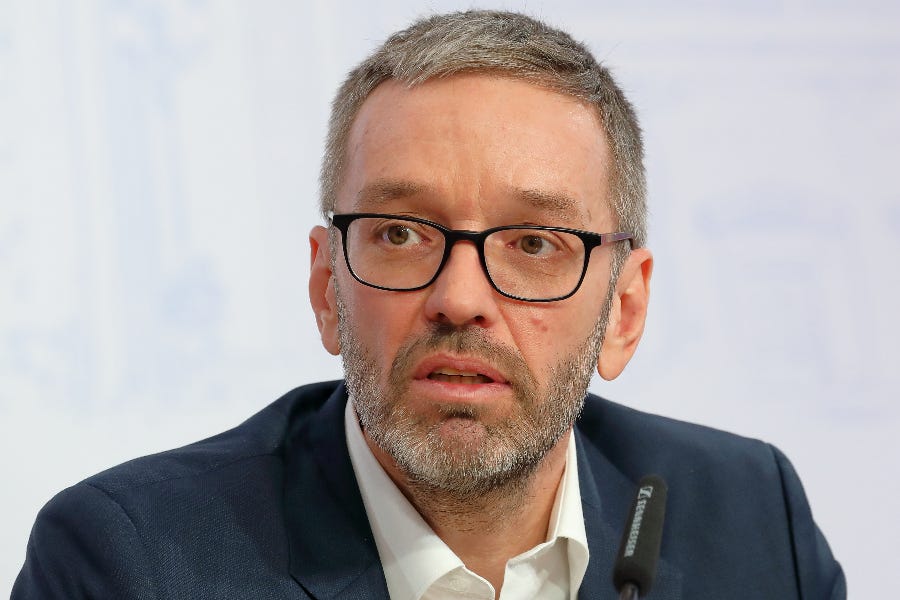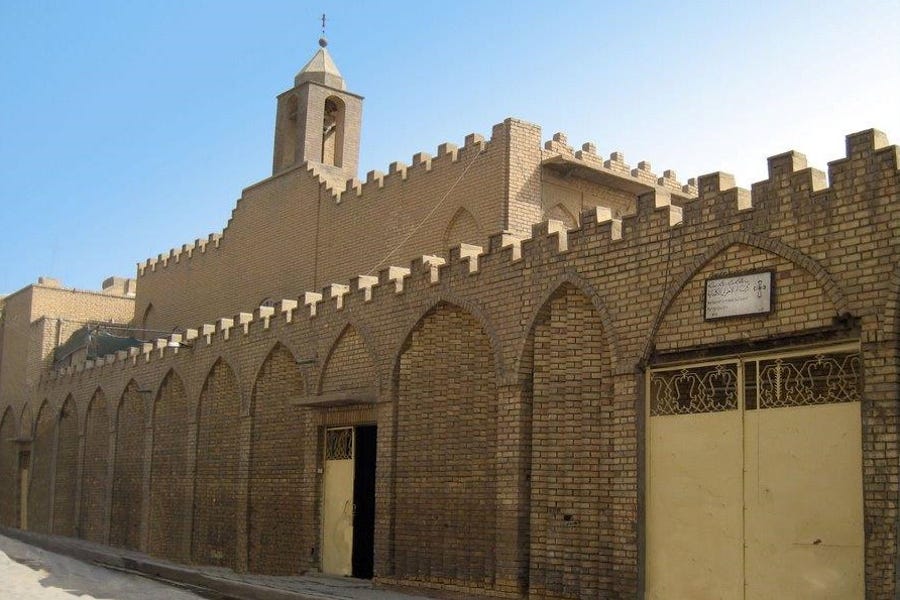The Freedom Party of Austria (FPÖ), which came first in Sunday’s national parliamentary election, is frequently compared to the Alternative for Germany (AfD) party.

Both are widely described as “far right.” Both want a sharp reduction in immigration, a curb on the powers of the supranational European Union, and an end to sanctions against Russia. Both are leading what German-speaking media call a Rechtsruck (“rightward shift”) in their respective countries.
But bishops have only explicitly urged Catholics not to vote for one of the parties.
In February, Germany’s bishops declared that “right-wing extremist parties,” including the AfD, “cannot be voted for.” But the Austrian bishops have made no similar statement about the FPÖ.
Why is that?
The rise of the FPÖ
Following the horrors of the Second World War, far-right political forces were marginalized in Austria and Germany.
But the political landscape in both countries has changed dramatically in recent years in response to mass immigration, the coronavirus pandemic, the Ukraine war, and a cost of living crisis.
While the AfD was only founded in 2013, the FPÖ has a longer pedigree. It dates back to 1956, when it positioned itself as a centrist party (though its first leader, Anton Reinthaller, was a former SS officer).
The FPÖ began to embrace right-wing populism after the charismatic Jörg Haider became its leader in 1986. (Haider left the party in 2005 and died in a car crash three years later.)
In 2017, the FPÖ became the junior partner in a coalition government with the Austrian People’s Party (ÖVP), led by Sebastian Kurz, a Catholic who became the youngest chancellor in Austrian history, at the age of 31.
In June 2021, Herbert Kickl, who served as interior minister in the Kurz government, became the FPÖ’s leader. The bespectacled but pugnacious figure has a Catholic background, but describes himself as “at least half Protestant in spirit.”
“Martin Luther knew it was necessary to preach in a language that could also be understood by ordinary people,” he said in a 2023 interview. “This vividly demonstrates the power of the word.”
Kickl clashed repeatedly with Vienna’s Cardinal Christoph Schönborn over whether people had a duty to be vaccinated against COVID-19. He also appealed to Schönborn to suspend the church contribution, the Austrian equivalent of church tax, to help Catholics struggling amid inflation.
Kickl’s relations with the Church continued to be strained during the recent election campaign.
In August, the Austrian bishops’ conference criticized the FPÖ’s use of the electoral slogan “Euer Wille geschehe,” meaning “Your (plural) will be done.” It was a play on “Dein Wille geschehe” — “Your (singular) will be done” — from the German version of the Our Father.
The FPÖ has a history of using religiously inflected slogans, credited to Kickl, including “The West in Christian hands,” “Love your neighbors — for me, they are our Austrians,” and “So help me God.”
In the Sept. 29 legislative election, the FPÖ — whose manifesto was entitled “Fortress Austria” — came first with 28.9% of the vote, followed by the governing ÖVP with 26.3%, and the center-left Social Democratic Party (SPÖ) with 21.1%. The turnout was high, at 77.3%.
‘Proven right-wing extremist’
Austria’s bishops’ conference didn’t criticize the FPÖ openly ahead of the election, limiting itself to generic appeals for cooperation and respect for democratic institutions.
The Catholic Laity Council of Austria (KLRÖ) offered a detailed guide to party policies of interest to Catholic voters, while other Catholic organizations argued that the FPÖ’s stances on immigration and other topics made it unacceptable for Catholics.
What explains the bishops’ reticence? According to the journalist Klaus Prömpers, it may come down to one significant difference between the AfD and the FPÖ.
Germany’s Federal Office for the Protection of the Constitution (BfV), a domestic intelligence agency, has classified the regional associations of the AfD in the states of Thuringia, Saxony, and Saxony-Anhalt as “proven right-wing extremist.”
These formal declarations arguably emboldened the German bishops to denounce the AfD by name. Indeed, the bishops referred twice to the BfV in their February statement.
“Anyone who votes for parties that have been categorized as ‘proven right-wing extremist,’ at least in part, by the Federal Office for the Protection of the Constitution is opposing the fundamental values of human coexistence and democracy in our country,” the bishops said.
Without an equivalent declaration in Austria, local bishops may have felt any declaration would lack a solid legal basis, Prömpers suggested in a Sept. 30 interview with Germany’s domradio.de.
The FPÖ is generally seen as more disciplined and less internally divided than the AfD, which has left it somewhat less exposed to criticism and scandal.
What’s next
As the FPÖ won a plurality of votes but not a majority, it cannot take power without forming a coalition.
The second-placed ÖVP has ruled out joining a government with Kickl as chancellor, although it has formed coalitions with the FPÖ in three of the nine Austrian states: Lower Austria, Upper Austria, and Salzburg.
The ÖVP may therefore seek to build a coalition with other parties, a process that’s expected to take months.
Klaus Prömpers suggested that Church leaders may be waiting to see who governs Austria before deciding whether they need to take a sharper stand. The German bishops have given their Austrian counterparts a possible template, but they don’t seem in any hurry to adopt it.




